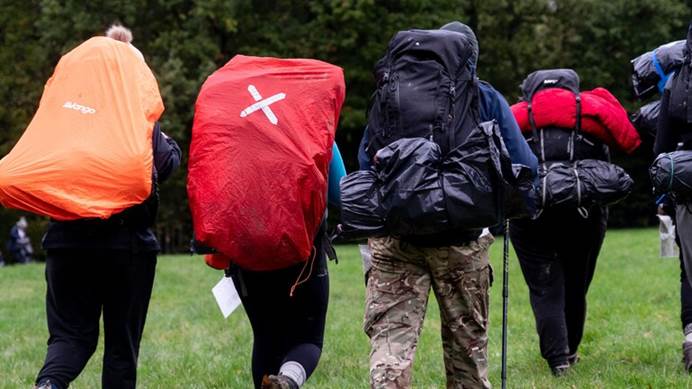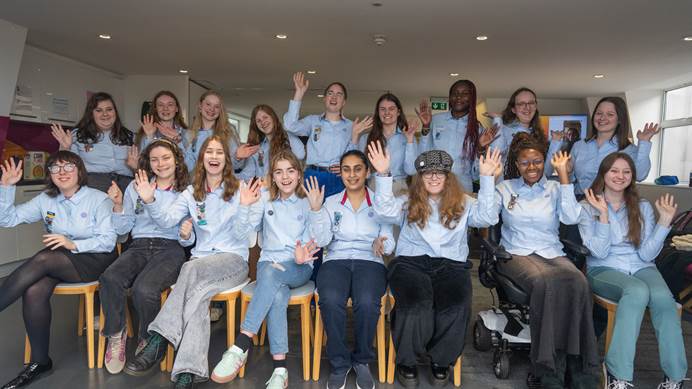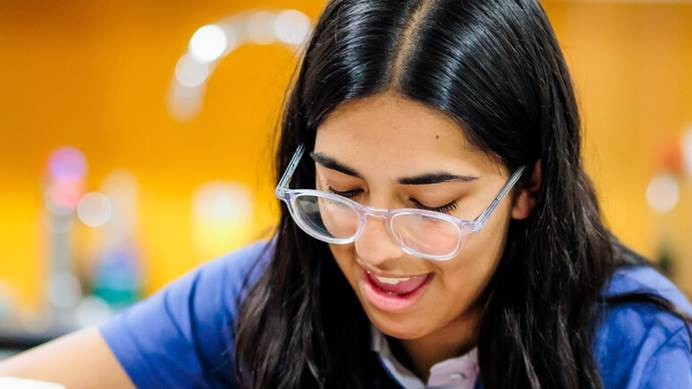What is peer education and how can you get involved?
If you're aged 14 to 25, you can help girls explore important topics
Peer educators are 14-to-25-year-olds who help Brownies, Guides and Rangers explore important topics, like self-esteem, safety and gender stereotypes.
It’s a girl-led programme that works because girls want to listen to their peers, who understand their concerns and priorities firsthand. Peer educators are trained to run fun, safe and challenging sessions in units. We’ve developed the sessions with expert partners.
Peer educators currently run three different sessions:
- Think Resilient: giving girls the tools to build their mental well-being. Developed with YoungMinds.
- Breaking Free: giving girls the tools to challenge gender stereotypes. Developed with expert academics, CEOs and charities.
- Safe the world: helping members make a stand for safety. Developed with charity experts and police officers.
‘Being a peer educator means knowing that while the girls are taking part in activities that are fun, they're also being taught something really important, such as how to deal with harassment or body issues,’ says peer educator Lauren.
‘I enjoy being a peer educator as it helps begin the conversation. The girls are learning tactics to help combat these issues that they may use in the future. Coming from someone that you may see yourself in helps reinforce these ideas!’
Before they lead sessions in units, peer educators are trained.
‘We learned new skills, such as peer to peer communication for different age groups, how to deal with safeguarding and safety, and how to manage challenging behaviour. We also learned how to organise, facilitate, and then reflect on a session,’ says Clare. ‘It was such great fun. Everyone should think about becoming a peer educator for the knowledge and life skills you gain!’
Once peer educators are trained, units in their area can invite them to lead a session. Behind the scenes, they’re supported by peer education coordinators. They link leaders and peer educators together to organise sessions, support peer educators to shout about their skills, arrange sessions locally and encourage Rangers to get involved with peer education.
They also coach and mentor peer educators, make sure that your peer educators get their badges, and help set up training events for new peer educators.
‘It's such an amazing time to see girls as young as seven begin to learn about these issues and take part in active discussion with ideas that you may never have thought of. It unleashes a creative side in each of them which is truly amazing to see,’ says Lauren.
Find our more about peer education and, if you're aged 14 to 25, find out how you can become a peer educator.



